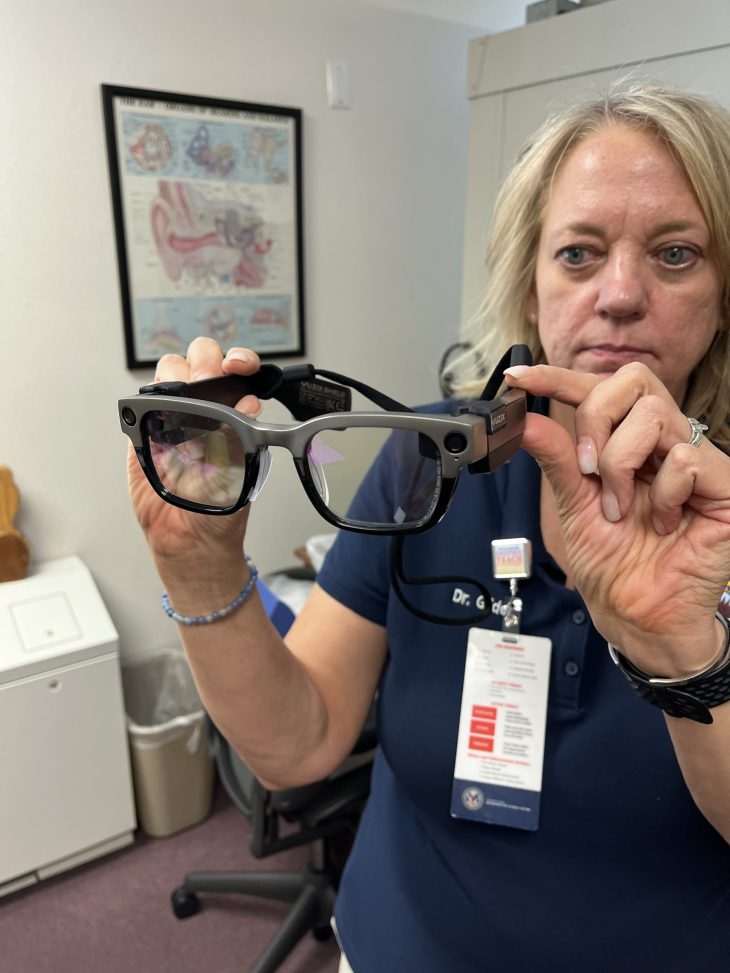
‘Glasses from the hearing department’
Thanks to his new glasses from VA, Korean War Navy Veteran Walter Crites can have interesting conversations once again.
About 25 years ago, Crites, a 91-year-old patient at Northern Arizona VA Health Care System (NAVAHCS), lost almost all his hearing after complications from multiple surgeries.
He received a cochlear implant, an electronic device that allows some deaf people to hear, but it failed after about 15 years and could not be replaced due to various health concerns.
For the past decade, having any form of conversation was a real challenge for Crites.
“I had to carry a steno pad and plenty of pens just to communicate,” he said. “My wife has been tested to the extreme.”
Crites eventually started using speech-to-text on his phone to understand what people were saying to him, but it still wasn’t ideal.
“The problem with that is you’re constantly looking at your phone, so you’re not as engaged in a conversation,” said Dr. Darla Gilder, Crites’s audiologist at NAVAHCS.
Caption glasses

In early 2024, Crites heard about caption glasses, which use augmented reality to display real-time captions in the field of view of the wearer. He started asking if he could get a pair through VA.
Dr. Gilder had been reading about the new glasses as well, and began working to get Crites a pair.
The technology was so new, however, that VA was still testing it. Finally, Crites became the first Veteran at NAVAHCS to receive caption glasses in April 2025.
“It’s going to make life a whole lot simpler,” Crites said when he received them. “It’s funny, I’m getting glasses from the hearing department!”
“It’s amazing how fast and accurate the captioning is,” Dr. Gilder said.
While the average consumer would need to pay about $5,000 for the device, Crites and his fellow Veterans who are enrolled in VA health care pay nothing.
“All devices through VA that assist with hearing loss are free for the Veterans,” Dr. Gilder said.
To be eligible for caption glasses, Veterans need to have a severe hearing disability or handicap that can’t be properly assisted by other available options such as hearing aids or cochlear implants.
Crites said that his proactive approach to improving his health and wellbeing is the reason he got the glasses as soon as he did.
“You have to take the initiative for your health,” he added.
Recommend0 recommendationsPublished in My Healthy Veteran, US National Health Agency Sources





